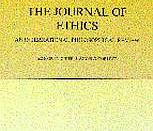Computer technology is advancing at such a rapid pace that many are concerned that the standards for the ethical development and use of the technology may not keep pace. Given that the field of computer science is relatively new, it follows that the subject of computer ethics is also relatively undeveloped. Ethics is a philosophical pursuit which makes giving an exact definition, as can be done in scientific pursuits, somewhat complicated. This disparity between the philosophical and the scientific tends to slow the development of computer ethics while the science of computer and information technology continues to advance at an almost exponential rate. This creates a dilemma for the practitioners of the science of computing as well as society as a whole as the users of their creations. Enhanced education on the ethical development and use of computers and technology is the key to bringing these two groups together.
Defining computer ethics and its scope is a challenge.
Terrell Bynum does this very well in his paper "Computer Ethics in the Computer Science Curriculum". He says the term computer ethics was first coined by Walter Maner in the mid 1970s in his Medical Ethics class at Old Dominion University when he saw the ethical problems aggravated, transformed or created by computer technology in medical practice. (Bynum, 2008) One of the more notable cases is the Therac-25 medical linear accelerator, a radiation device used to treat cancer. A flaw in the software that controlled the machine allowed the operator to override the built in safety features causing at least six patients to be given dangerous doses of radiation. Some of whom died. This condition was corrected after the fact, however given more time to test, and better development procedural training, such as having the users test the equipment to see how...


